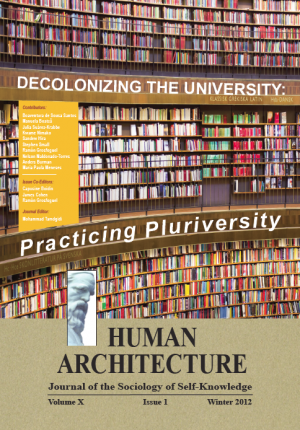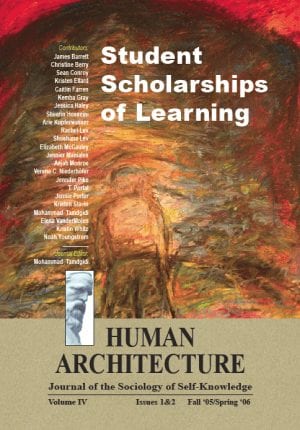Journal Article — About Them, But Without Them: Race and Ethnic Relations Studies in Dutch Universities — by Kwame Nimako
$15.00
On the basis of direct experience in the Dutch university system, the author analyses the ways in which knowledge about ethnic minorities—so-called “minority research”—has been hegemonized by dominant elites who view minorities as problem populations and seek to manage minority problems in such a way as to minimize them and never question their own domination nor the historical heritage of colonialism and slavery.
Description
Abstract
On the basis of direct experience in the Dutch university system, the author analyses the ways in which knowledge about ethnic minorities—so-called “minority research”—has been hegemonized by dominant elites who view minorities as problem populations and seek to manage minority problems in such a way as to minimize them and never question their own domination nor the historical heritage of colonialism and slavery. He describes several initiatives undertaken—mainly outside the university—by minority groups to re-examine race and ethnic relations and the history of slavery and abolition, including the National Platform on the Legacy of Slavery, the National Institute for the study of Dutch slavery and its Legacy (NiNsee), and the Black Europe Summer School.
Recommended Citation
Nimako, Kwame. 2012. “About Them, But Without Them: Race and Ethnic Relations Studies in Dutch Universities.” Pp. 45-52 in Decolonizing the University: Practicing Pluriversity (Human Architecture: Journal of the Sociology of Self-Knowledge: Volume X, Issue 1, 2012.) Belmont, MA: Okcir Press (an imprint of Ahead Publishing House).
The various editions of Decolonizing the University: Practicing Pluriversity can be ordered from the Okcir Store and are also available for ordering from all major online bookstores worldwide (such as Amazon, Barnes&Noble, and others).
Read the Above Publication Online
To read the above publication online, you need to be logged in as an OKCIR Library member with a valid access. In that case just click on the large PDF icon below to access the publication. Make sure you refresh your browser page after logging in.








